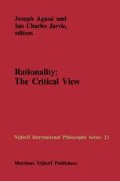Abstract
Social change of any kind — including westernization — is piecemeal, haphazard and chaotic, even where attempts are made to organize and plan it. Consequently the student of westernization has to be careful that his work does not reflect too closely this chaos. Possibly our best plan would have been to follow the traditional parcelling-up of society: economics, kinship, politics, religion and culture. This being a short and sketchy study there is not space to deal in detail with all of these, but perhaps a few cursory words on what they were like in Imperial China will be a starting point.
Access this chapter
Tax calculation will be finalised at checkout
Purchases are for personal use only
Preview
Unable to display preview. Download preview PDF.
References
See Maurice Freedman, ‘The Family in China, Past and Present’, Pacific Affairs, vol. XXXIV, 1961, pp. 323–36.
Cf. Arthur Koestler, The Lotus and the Robot, London 1960.
Robert S. Elegant, The Centre of the World, second edition, N.Y. 1968.
Dennis Bloodworth, The Chinese Looking Glass, New York 1967.
James Macdonald, ‘China and the “barbarians”’, New Society, vol. 10, 31 August 1967, pp. 295–6.
Fung Shui is a complex of pseudo-scientific beliefs about the ‘luck’ and prosperity associated with sites for villages, graves, houses, etc. Some description of it can be found in Marjorie Topley, ‘The Role of Savings and Wealth among Hong Kong Chinese’, in I.C. Jarvie and J. Agassi, eds., Hong Kong: A Society in Transition, London 1969, pp. 167–227 in pp. 184 and 199
Maurice Freedman, ‘A Report on Social Research in the New Territories — 1963’,a mimeograph in the Colonial Secretariat Library, Hong Kong, paras. 47–71, also his Chinese Lineage and Society: Fukien and Kwangtung, London 1966.
Arthur Smith, Chinese Characteristics, New York 1894.
Lin Yutang, My Country and My People, New York 1935.
Hu Hsien-Chin, ‘The Chinese Concepts of “Face”’, American Anthropologist, Vol. 46, 1944, pp. 45–64.
Leon Stover, ‘“Face”: Secondary Verbal Analogues of Interaction in Chinese Culture’, a Ph.D. thesis in the library of Columbia University, New York.
E.E. Evans-Pritchard, Witchcraft, Oracles and Magic among the Azande, London 1937, especially pp. 475–8.
Cf. I.C. Jarvie, ‘The Idea of Social Class’ in Concepts and Society, London 1972.
See also K.E. Boulding, The Image, Ann Arbor 1961, pp. 100–1.
Cf. C.P. Fitzgerald, The Chinese View of their Place in the World, London 1964, p. 61.
Lin Yutang quotes the following from the Book of Rites, ‘Courtesy is not extended to the commoners, and punishment is not served up to the lords.’ See op. cit., p. 198.
Maurice Freedman, ‘The Handling of Money: A Note on the Background to the Economic Sophistication of Overseas Chinese’, Man, vol. lix, no. 89, 1959, pp. 64–5.
Our account is an interpretation of Dr Sun’s major work, The Three Principles of the People (San Min Chu I), and of its influence. For the historical background to Chinese twentieth century westernization, see B. Schwartz, In Search of Wealth and Power, Cambridge, Mass., 1964.
See K.M.A. Barnett, The Census and You, Hong Kong 1962, p. 12.
Marjorie Topley, ‘Capital, Saving and Credit among Indigenous Rice Farmers and Immigrant Vegetable Farmers in Hong Kong’s New Territories’, in Raymond Firth and B.S. Yamey (eds.), Capital, Saving and Credit in Peasant Societies, London 1964.
Editor information
Editors and Affiliations
Rights and permissions
Copyright information
© 1987 Martinus Nijhoff Publishers, Dordrecht
About this chapter
Cite this chapter
Jarvie, I.C., Agassi, J. (1987). A Study in Westernization. In: Agassi, J., Jarvie, I.C. (eds) Rationality: The Critical View. Nijhoff International Philosophy Series, vol 23. Springer, Dordrecht. https://doi.org/10.1007/978-94-009-3491-7_26
Download citation
DOI: https://doi.org/10.1007/978-94-009-3491-7_26
Publisher Name: Springer, Dordrecht
Print ISBN: 978-90-247-3455-9
Online ISBN: 978-94-009-3491-7
eBook Packages: Springer Book Archive

